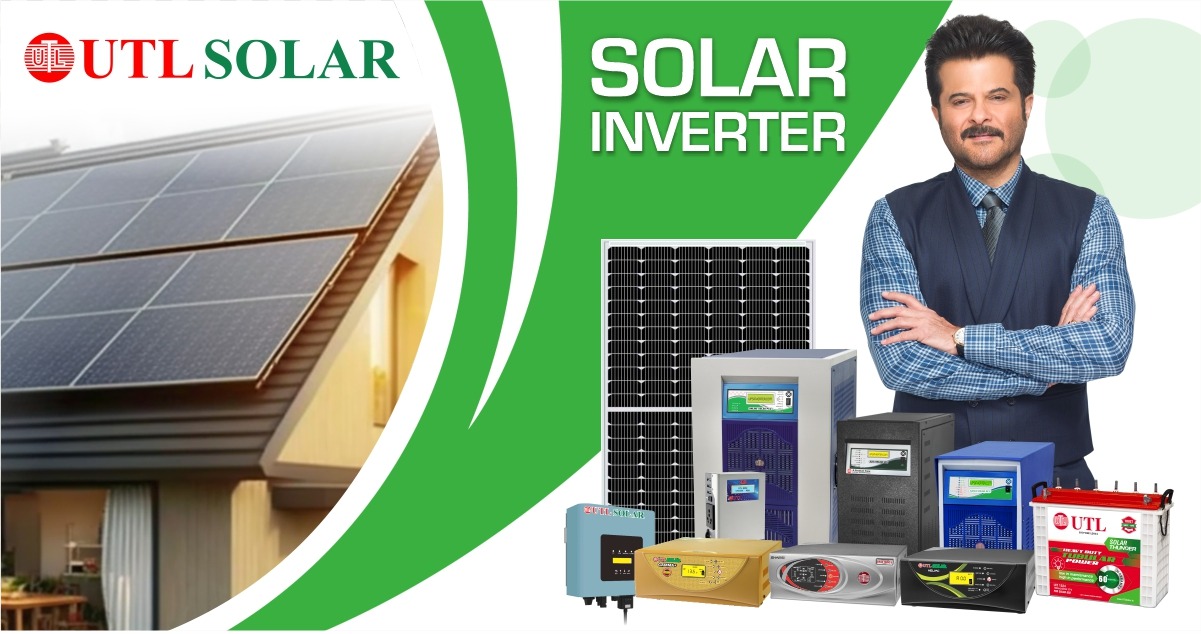Solar Inverters
In the world of renewable energy, solar power stands out as a promising solution for sustainable electricity generation. Solar panels are a familiar sight on rooftops, harnessing the sun’s energy to power homes and businesses. However, behind these panels lies a crucial component known as the solar inverter. In this article, we’ll delve into the top five advantages of incorporating a solar inverter into your home or business setup.
Advantage 1: Energy Independence
How Solar Inverters Promote Energy Independence
Solar inverters play a pivotal role in converting the direct current (DC) generated by solar panels into alternating current (AC), which is compatible with standard electrical appliances. By installing a solar inverter, homeowners and businesses can effectively harness solar energy, reducing reliance on traditional utility providers. This shift towards energy independence not only empowers individuals but also contributes to a more sustainable energy landscape.
Advantage 2: Cost Savings
Exploring Cost Reduction with Solar Inverters
One of the most significant advantages of solar inverters is the potential for cost savings. By generating electricity from sunlight, users can offset their reliance on grid-supplied power, leading to reduced electricity bills over time. Additionally, many regions offer incentives and rebates for adopting solar technology, further enhancing the financial benefits of installing a solar inverter.
Advantage 3: Environmental Benefits
Understanding Environmental Impact Reduction
In addition to financial savings, solar inverters offer compelling environmental benefits. Unlike traditional fossil fuel-based power generation, solar energy production produces no greenhouse gas emissions or air pollutants. By embracing solar power with the help of inverters, individuals and businesses can significantly reduce their carbon footprint and contribute to mitigating climate change.
Advantage 4: Reliability
Enhancing Reliability with Solar Inverters
Solar inverters enhance the reliability of electricity supply, particularly in regions prone to power outages or grid instability. With battery storage capabilities, some advanced inverters can store excess solar energy for later use, providing backup power during emergencies. This reliability ensures uninterrupted electricity supply, offering peace of mind to homeowners and businesses alike.
Advantage 5: Grid Stability
Contributing to Grid Stability Through Solar Inverters
By integrating solar inverters into the electrical grid, users can contribute to overall grid stability. Solar power generation tends to peak during daylight hours, aligning with periods of high energy demand. This natural synergy helps balance supply and demand on the grid, reducing strain during peak usage times and enhancing overall system resilience.
Conclusion
In conclusion, solar inverters play a crucial role in unlocking the full potential of solar energy for both residential and commercial applications. From promoting energy independence and cost savings to delivering environmental and reliability benefits, solar inverters offer a myriad of advantages. By embracing this renewable energy technology, individuals and businesses can not only reduce their environmental footprint but also enjoy long-term economic benefits.
FAQs:
Are solar inverters suitable for all types of properties?
Solar inverters can be installed on various property types, including residential homes, commercial buildings, and industrial facilities. However, factors such as available sunlight, roof orientation, and local regulations may influence the suitability of solar installations.
What maintenance is required for solar inverters?
Solar inverters typically require minimal maintenance, with occasional inspections recommended to ensure optimal performance. Cleaning solar panels and inspecting for any debris or shading can help maximize energy production.
Can solar inverters operate during power outages?
Some advanced solar inverters offer backup power capabilities, allowing them to operate independently or in conjunction with battery storage systems during power outages. However, not all solar inverters provide this feature, so it’s essential to select a suitable model based on specific needs.
How long do solar inverters last?
The lifespan of a solar inverter can vary depending on factors such as quality, usage patterns, and environmental conditions. On average, solar inverters are expected to last between 10 to 15 years, although some may continue to function effectively for longer periods with proper maintenance.
Are there any government incentives available for installing solar inverters?
Many governments offer incentives and rebates to encourage the adoption of solar technology, including solar inverters. These incentives may include tax credits, grants, or feed-in tariffs, depending on the region and applicable regulations.










